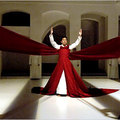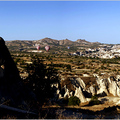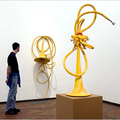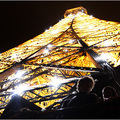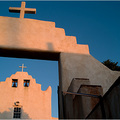
Lou Urneck
Nikos Tsanos, the writer’s guide to fly-fishing in Greece, casts on the Kalarritikos River in the mountains of Epirus, the northwest region of the country.
MY search for trout fishing in Greece began on the slopes of the Taygetus Mountains of southern Greece where Spartan boys once toughened themselves for battle against the Persians at Thermopylae.
Not finding fish in the Evrotas River, which waters the oranges and olives of the Spartan plain, I pushed farther up into the mountains of the Peloponnesus, the big peninsula that gives Greece its characteristic shape. I followed maps and my instincts and asked questions of local villagers and others, who responded with puzzled looks. Fly-fishing for trout in Greece? Greeks catch their fish in the sea, often with spear guns and sometimes with dynamite.
Ever since I had first looked on the rugged peaks that define the Greek landscape, I was seized with the romantic notion of catching a trout in an ancient mountain stream, home to some of Homer's woodland nymphs. It seemed a preposterous notion at first, but finally my journey was rewarded in Epirus, about 180 miles north of my starting point, in the northwest corner of Greece.
I found cold crystalline rivers that flowed through glorious oak-clad mountains and held a lot of wild trout. It is trout fishing as Lord Byron would have imagined it: a wild and rugged land, softened here and there with touches of classical antiquity. I had stumbled into a fisherman's paradise.
On one section of the Louros River in Epirus, I cast my fly in the eddies created by the ruins of a 2,000-year-old Roman aqueduct, which had carried the river's sweet water 30 miles south to the ancient city of Nikopolis. Octavian built the city to commemorate his victory at Actium in 31 B.C.
My guide through the region was Nikos Tsanos, 41, a serious fly-fisherman and the owner of a door and window plant in Ioannina, capital of Epirus. He owns a fine collection of fly rods and reels, reads widely on fly-fishing in the United States and Britain and has organized a small group of fishermen, Greek and British, in the area to protect the fishing.
He and I met one morning at one of the many pleasant lakeside cafes in Ioannina. As with many things in Greece, planning a fly-fishing trip begins with strong coffee and a cigarette. Mr. Tsanos explained to me that Epirus offers freestone streams (rain and snow fed) and limestone streams (spring fed). It also produces an astonishing variety of insect life for fly-fishermen. The rivers have regular hatches of mayflies, caddis and stoneflies. “This is the Montana of Greece,” he said.
It is also close to the place where fly-fishing was born. Scholars say the first reference to the sport was by a Roman in the second century A.D. who described fishing with feathers in a river in a region near Epirus.
Fishing the area's limestone streams requires skill. The water is clear as pane glass, and the brown trout are easily spooked. They are also highly selective, taking only the flies that imitate insects, in size, color and shape, that naturally occur in the stream.
As a cool breeze came to us under our cafe umbrella off Lake Pamvotis, we planned to meet again in the evening to catch the insect hatch at dusk on the nearby Louros River.
At dusk, Mr. Tsanos picked me up at my hotel, and we drove to the village of St. George, which shares its patron saint with many Greek villages. A hole pierces the mountain above the village, and in the hole stands a cross, visible for miles. The old story, he told me, is that St. George flew through the hole on his horse, an event that gave the village its name. The Louros River flows below the hole and the cross.
If there is a more visually seductive place to fish, I have never seen it. The river gurgles past the village, under giant and sinuous oaks and through the Roman aqueduct. It is a scene from an Italian Renaissance painting. Unfortunately for me, I couldn't hook a fish as Mr. Tsanos landed one brown trout after another. At dark, we called it quits and decided to meet early the next morning for a trip to the Kalarritikos River.
“Tomorrow, you will catch a trout,” he assured me. “The river is a nursery of trout.”
He was right. In 40 years of fly-fishing in North America, I have never fished a stream that was both more beautiful and more productive. We drove about an hour over hairpin roads through the deeply cleft mountains. We parked at an iron bridge that spanned the stream and scrambled down the steep rocky slope to the silver band of water.
Mr. Tsanos offered me his British-made rod. It was a lovely super-light rod designed for this kind of finesse fishing. It was a generous offer, and I couldn't resist.
Our plan was to fish from the iron bridge upstream to an ancient stone bridge below a monastery that seemed magically fastened to the side of the mountain. It was about a half mile of water, and it would take us all day to cover it.
The river wended through a narrow gorge, rushing here and pausing there, to form an ellipsis of small waterfalls and quiet pools. The water was as cold as refrigerated gin, and the sun was so bright in the sky of sheer blue that the fly seemed to dissolve in the light when I lifted it from the water.
Mr. Tsanos soon began catching 10-to-12-inch trout on a big cream-colored dry fly. I was going fishless with my fly, an Adams Irresistible. “Here, try this rod and fly,” he said. “Maybe you will like it better.” He handed me his favorite rod, a stiff nine-footer that was perfect for reaching the far end of the pools.
I began picking up trout, gorgeous colorful browns, with vivid aureoles of yellow, orange and blue.
We had lunch in a vale of oaks that were placed like dancers among the boulders and then we made our way onward, climbing a high bank and looking down to a deep pool of transparent blue water and white stones. We could see three very large trout — one possibly six pounds — moving along the bottom. We knew they would be hard to catch on a dry fly, but we tried anyway. No luck.
We reached the old stone bridge, a marvel of stones, mortar and ancient engineering. We said goodbye to the stream and ascended to have a look at the monastery. “The men went there for a religious life and to get away from the Turks,” Mr. Tsanos said. “Who could reach them there?”
I had to agree: the monastery gripped the cliff like a piece of moss. It was a series of cells cut into the stone with individual doors and a rope that ran down to the path, so that food could be passed up to the monks.
Below the monastery, a stream flowed directly out of the rock of the mountain — the rock appeared to yawn, and from its yawn a stream poured out. Exhausted but pleased with our successful day, we kneeled and drank the delicious cold water with our cupped hands. I imagined the presence of nymphs.
If YOU GO
Ioannina can be reached on a 45-minute flight from Athens on Olympic or Aegean Airlines, which have several flights a day, or by car (a six-hour drive). You'll need to rent a car either in Athens or Ioannina to reach the rivers and the classical, Byzantine and Ottoman historical sites of Epirus.
Because the fishing is hardly known outside the region, there is no established guiding industry. For information on where and how to fish and local conditions, send an e-mail message to Nikos Tsanos at tsanos1@otenet.gr. You should bring your own equipment, though Gerontas Gun and Tackle Shop in Ioannina offers rods and flies. No fishing license is required.
A wide range of hotels is available in the city, including the Epirus Palace (30-26510-93555, www.epiruspalace.gr), Du Lac (30-26510-59100, www.dulac.gr) and Hotel Olympic (30-26510-25147; www.hotelolymp.gr), which range in price in price from about 125 euros to 150 euros a night (about $175 to $210 at $1.41 to the euro). You can also choose a clean, adequate small hotel or pension near the old section of the city. I stayed in the Egnatia Hotel (30-26510-25667) and found it better than adequate. It advertises a rate of 65 euros a night.
There are a dozen or more restaurants on the lake promenade, and you will be among many people, old and young, enjoying the soft Greek night outdoors. A high-end meal is 25 euros, and many excellent meals can cost far less. Be sure to leave room after dinner so that you can walk along the lakeshore and sample the bakeries that stay open into the evening.
Lou Ureneck’s memoir "Backcast: Fatherhood, Fly Fishing and a River Journey Through the Heart of Alaska" will be released next month by St. Martin’s Press.


